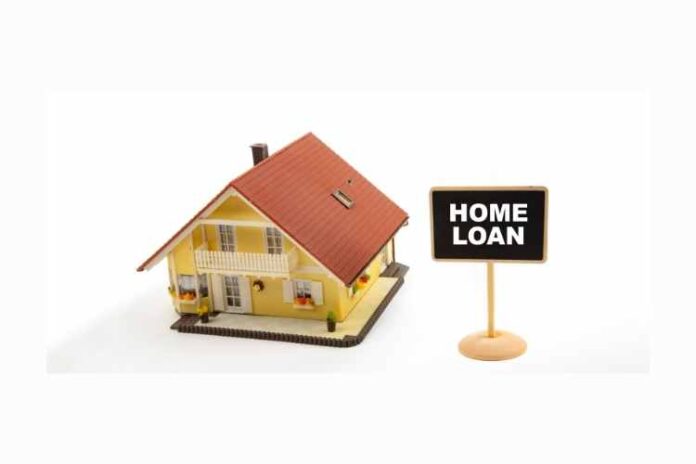In the first quarter of 2022, mortgages accounted for 71% of combined household debt in the US. One of the first steps of buying a home is applying for a mortgage.
But, before you use and start the mortgage process, it helps to understand the different types of home loans available. That way, you’ll have a better idea of what to look for. Like many first-time home buyers, knowing how to compare different types of mortgages can be difficult.
Keep reading to find tips for finding the best home loan for you.
Conventional Loans
Conventional loans are types of home loans loan available from banks and credit unions. These loans are usually for borrowers with good credit looking for a low-interest rate loan.
Conventional loans are usually either fixed-rate or adjustable-rate mortgages, and they offer terms of 15, 20, or 30 years. It will also require a down payment of at least 3% of the property’s value.
Some conventional loans may require a higher down payment, and others may allow a lower down payment if you have private mortgage insurance. Interest rates on conventional loans are usually pretty competitive, and you may be able to get a lower rate if you have a good credit score and a solid financial history.
There are loan application mistakes to avoidto ensure your application gets approved. Look for professional tips and advice to avoid problems getting your loan.
Fixed-Rate Mortgages
Fixed-rate mortgages are the most common type of home loan. They offer the stability of a set interest rate and monthly payment.
However, they may not be the best option if you plan to sell your home or refinance within a few years. You may pay more interest than you would with a variable-rate mortgage.
A fixed-rate mortgage is a type of home loan where the interest rate on the mortgage is set for a specific period, usually between 1 and 5 years. The interest rate will then stay the same for the rest of the mortgage term, even if interest rates in the market rise. This type of mortgage can offer borrowers peace of mind, as they know exactly how much their monthly repayments will be for the duration of the fixed term.
Adjustable-Rate Mortgages
With an adjustable-rate mortgage (ARM), the interest rate is lower than a fixed-rate mortgage. However, the interest rate can change after a certain period (known as the adjustment period). It means that your monthly payments could go up or down, depending on the interest rate at the adjustment time.
If you plan on staying in your home for a long time, an ARM may not be your best option. However, if you think you may move in a few years, an ARM could save you money on interest.
If you’re considering an ARM, ensure you understand how they work and the potential risks. You may want to speak with a financial advisor to see if an ARM is right for you.
Federal Housing Authority Loans
Federal Housing Authority (FHA) loans are popular, especially for first-time home buyers. These loans have backing from the federal government and offer more lenient qualification standards than other loan programs. FHA loans are a good option for borrowers with low credit scores or those unable to make a sizeable down payment.
However, FHA loans also have certain disadvantages, such as higher mortgage insurance premiums and lower maximum loan limits. FHA may not be available for all types of properties, so it’s essential to do your research before you decide on a loan.
United States Department of Agriculture Loans
United States Department of Agriculture (USDA) loans are available to eligible rural and suburban homebuyers. They can be an excellent option for those who do not qualify for other home loans. USDA loans have several benefits, including no down payment, low-interest rates, and flexible credit guidelines.
Jumbo Loans
Jumbo loans are a type of home loan used for high-priced homes. They are also used for homes located in areas with high real estate prices.
Jumbo loans usually have a higher interest rate than other home loans. Still, they can be a good option for borrowers who can afford higher payments.
Combination Loans
A combination loan is a home loan that allows you to combine two different types of financing into one. It can be helpful if you need to access different financing types to cover your home’s costs.
For example, you might take out the first mortgage to cover most of the cost of your home and then take out a home equity loan or line of credit to cover the rest. It can give you the flexibility to choose the best type of financing for your needs. Bundling your loans together can help you get a lower interest rate.
Home Equity Loans
Home equity loans are a type of loan that allows you to borrow against the equity in your home. Equity is the portion of your home’s value that you own outright and can use as collateral for a loan.
Home equity loans have lower interest rates than other types of loans, making them a good choice for borrowers looking to save on interest. However, home equity loans also risk foreclosure if you can’t repay the loan.
Another type of home loan is a cash-out refinance. It is a loan that allows you to refinance your existing mortgage and take out a new loan for more than you owe on your home.
Choosing from the Different Types of Home Loans and Getting the Best Deal
There are many different types of home loans available on the market, each with its pros and cons. It’s essential to compare different home loan types before selecting one to ensure you’re getting the best possible deal.
You can choose from conventional loans, USDA loans, FHA loans, and much more. With so many options available, it can be tough to know where to start. An excellent place to start is by speaking to a mortgage broker, who can help you compare different home loan products and find the one that best suits your needs.
Did you find this article helpful? Don’t forget to check out our blog for more tips and advice on getting a home loan!


























